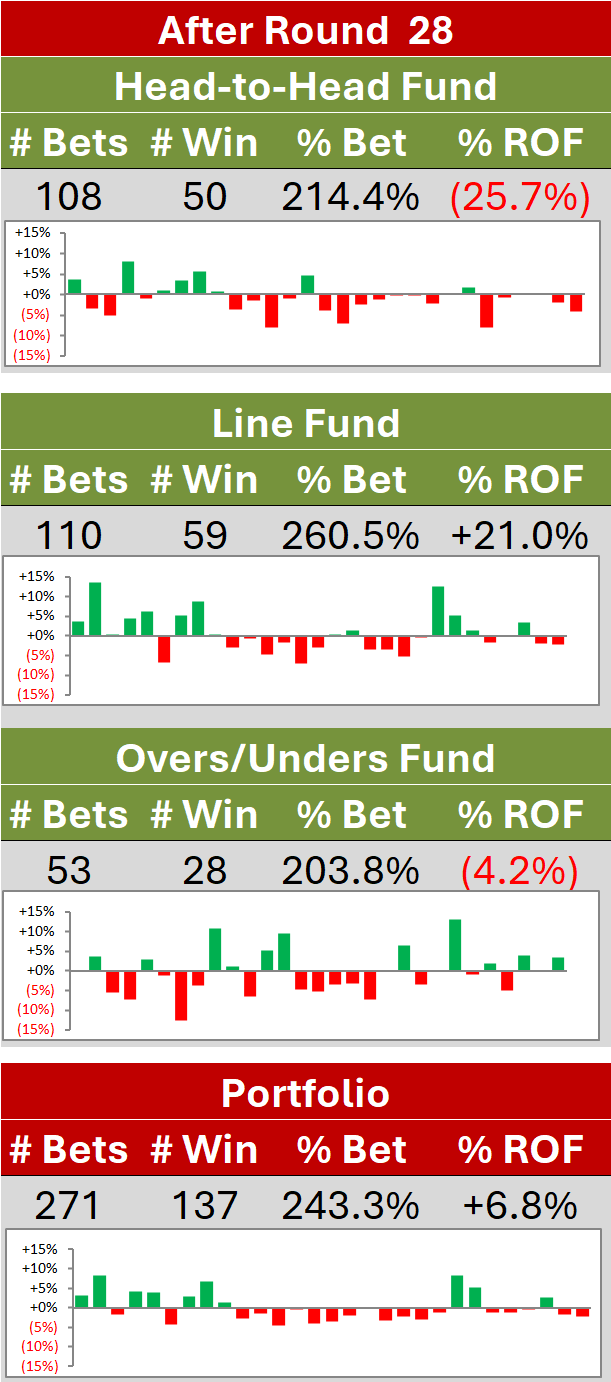Modelling the Total Score of an AFL Game
/Over the eight seasons from 2006 to 2013 an average AFL game produced about 185 points with a standard deviation of around 33 points. In about one quarter of the games the two teams between them could only muster about 165 points while in another one quarter they racked up 207 points or more.
Read More
